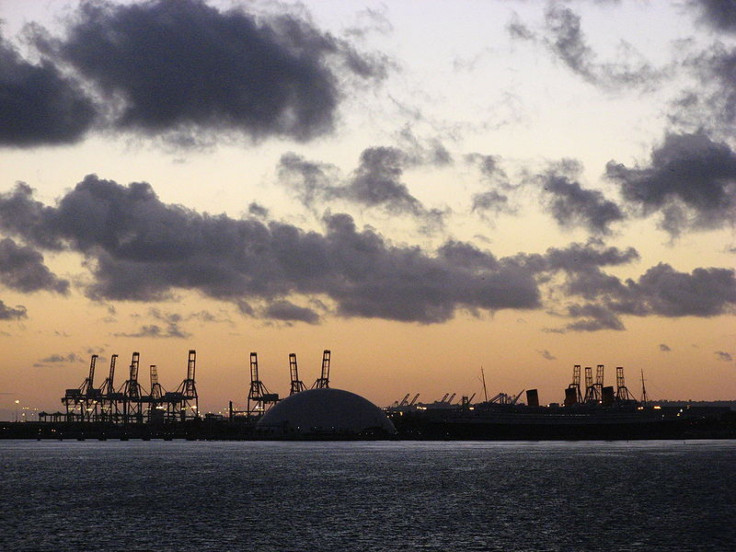Fracking Off California’s Coast ‘Far More Common Than Anyone Realized’

Fracking, the controversial oil production technique that uses a high-pressure stream of water, sand and chemicals to tap underground natural gas and petroleum reserves, happens more frequently in California than state officials previously believed.
After the Associated Press obtained drilling records through a public records request, the news agency found that oil companies in southern California have used fracking at least 203 times at six sites in the past two decades. Oil producers operating in Seal Beach and Huntington Beach used fracking more than a dozen times within the past five years. In Long Beach, one of the world’s largest shipping ports and a popular tourist destination, the sole oil company operating there completed five fracks this year alone.
The state agency that leases lands and waters to oil companies said it doesn’t track fracking, so there was little known about how often fracking was occurring in southern California.
"How is it that nobody in state government knew anything about this? It's a huge institutional failure," Kassie Siegel, an attorney with the Center for Biological Diversity, told the Associated Press. "Offshore fracking is far more common than anyone realized."
Alison Dettmer, a deputy director of the California Coastal Commission, told the Associated Press that the state will have to sort out who has authority over fracking operations in state waters. “It’s very complicated,” she said.
In September, California lawmakers passed a bill to regulate fracking, also known as hydraulic fracturing. The law, signed by democratic governor Jerry Brown, will require oil companies to obtain permits for fracking, notify neighbors of their operations and publically disclose what chemicals were used.
They’ll also be responsible for providing an independent scientific study on groundwater and air quality monitoring, the Huffington Post reported.
"Oil companies will not be allowed to frack or acidize in California unless they test the groundwater, notify neighbors and list each and every chemical on the Internet," State Senator Fran Pavely, a Democrat said in September, according to the Huffington Post. "This is a first step toward greater transparency, accountability and protection of the public and the environment."
Oil companies and, perhaps surprisingly, environmentalists opposed the bill -- the former for adding “conditions that will make it difficult” for oil producers to frack, and the latter for what they saw as shortcomings of the measure.
The law will go into effect on Jan. 1, 2015.
Opponents of fracking, a practice that occurs with little federal or state oversight, cite a number of the potential harmful effects fracking has on both the environment and surrounding communities. For one, there’s the possibility for groundwater contamination, as was witnessed a few years ago in Pennsyvlavia where a series of surface spills tainted the water supply in the Marceullus Shale region.
Then there’s the question of what chemicals are used in fracking activities, and if they pose a threat to the environment they’re introduced into. Between 2005 and 2009, there were about 750 chemicals used in hydraulic fracturing products. According to a 2011 report from the U.S. House of Representatives Committee on Energy and Commerce, some of these chemicals like salt and citric acid were innocuous. Others, like benzene, methanol and lead, were extremely toxic.
While the Long Beach Water Department maintains that fracking off Long Beach’s shores hasn’t caused any known impacts to residents’ water, the Natural Resources Defense Council suspects fracking is responsible for polluted drinking water in a number of other states, including Colorado.
“Natural gas producers have been running roughshod over communities across the country with their extraction and production activities for too long, resulting in contaminated water supplies, dangerous air pollution, destroyed streams, and devastated landscapes,” the NRDC notes on its website. “Weak safeguards and inadequate oversight fail to protect our communities from harm by the rapid expansion of fossil fuel production using hydraulic fracturing.”
© Copyright IBTimes 2024. All rights reserved.






















